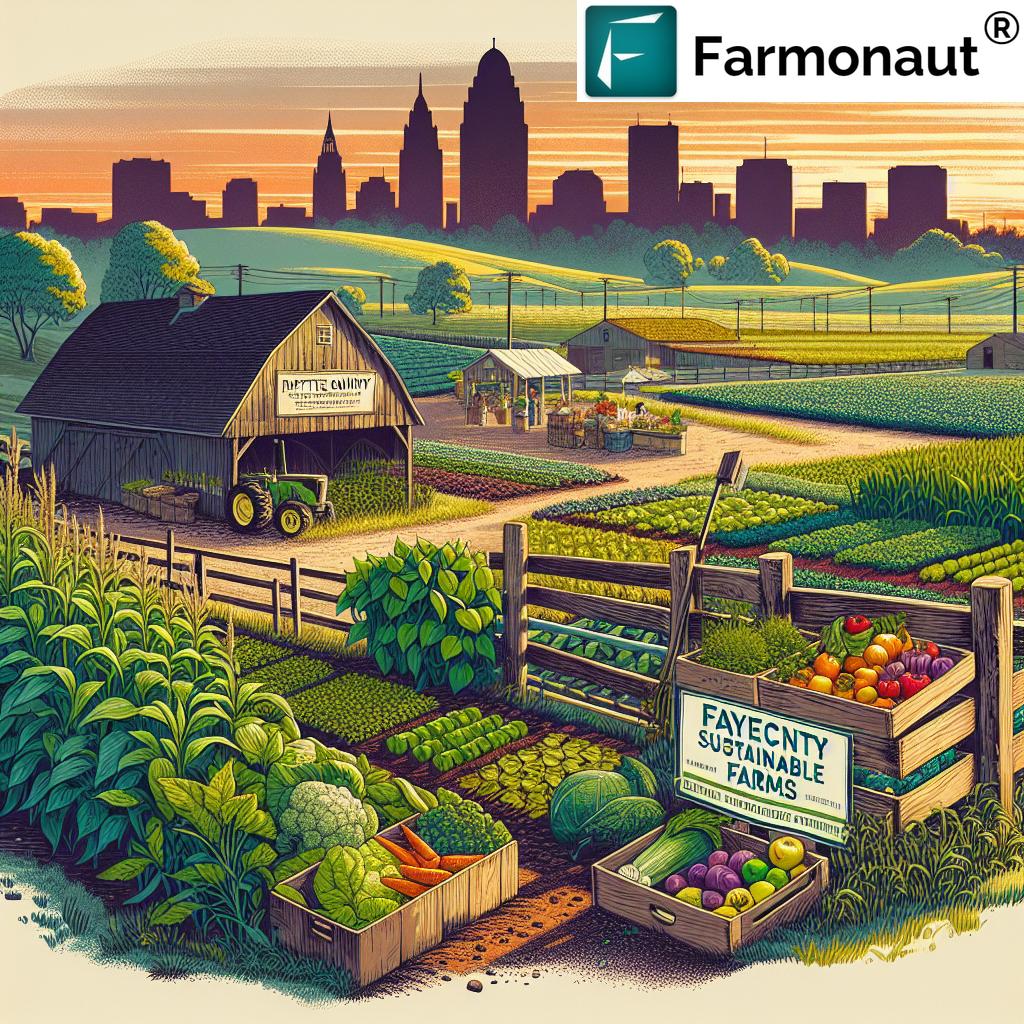Empowering Kentucky’s Black Farmers: Sustainable Agriculture and Local Food Production in Lexington
“Black farmers own less than 1% of Kentucky’s farmland, despite African Americans making up 8.5% of the state’s population.”
As we delve into the rich tapestry of Kentucky agriculture, we find ourselves at the intersection of history, sustainability, and innovation. In this comprehensive exploration, we’ll uncover the remarkable contributions of Black farmers to the commonwealth’s agricultural heritage and examine how their expertise is shaping the future of sustainable farming and local food production in Lexington and beyond.
The Historical Significance of African Americans in Kentucky Agriculture
To truly appreciate the current landscape of Black farming in Kentucky, we must first acknowledge its deep-rooted history. African Americans have played a pivotal role in shaping the agricultural sector of the United States since its inception.
- Slavery and agricultural labor
- Post-emancipation farming communities
- The Great Migration and its impact on rural Black populations
- Challenges faced by Black farmers throughout the 20th century
As Ashley Smith, executive director of Black Soil Kentucky, aptly puts it, “Farming is the oldest occupation held by African Americans in the United States.” This longstanding expertise has been passed down through generations, creating a rich legacy that deserves to be celebrated, sustained, and encouraged.
The Current State of Black Farming in Kentucky
Despite the historical significance of Black farmers in Kentucky, their numbers have dwindled over the years due to various socioeconomic factors and systemic challenges. Today, we find ourselves in a situation where:
- There are approximately 312 Black-owned farms in Kentucky
- This represents less than 0.5% of the state’s 67,000 total farms
- Black farmers face unique challenges in accessing resources and markets
However, organizations like Black Soil Kentucky are working tirelessly to change this narrative and empower Black farmers across the commonwealth.

Sustainable Farming Practices Championed by Black Farmers
Kentucky’s Black farmers are at the forefront of implementing sustainable agriculture practices that not only benefit their farms but also contribute to the overall health of the environment. Some of these practices include:
- Crop rotation and diversification
- Soil conservation techniques
- Water management and irrigation efficiency
- Integrated pest management
- Use of cover crops to improve soil health
These sustainable farming practices are not only environmentally friendly but also help improve crop yields and farm profitability in the long run.
Local Food Production and Its Impact on Lexington’s Economy
“Lexington’s local food initiatives have increased direct-to-consumer farm sales by over 30% in the past decade.”
The emphasis on local food production has been a game-changer for Lexington’s agricultural landscape. Black farmers have been instrumental in driving this movement, contributing to:
- Increased availability of fresh, locally-grown produce
- Strengthened community ties through farmers’ markets and CSA programs
- Reduced carbon footprint associated with food transportation
- Enhanced food security for urban and rural communities alike
One innovative initiative that has emerged from this focus on local food production is the Sprout Mobile Farmacy Market, spearheaded by Black Soil Kentucky. This mobile market brings farm-fresh produce directly to consumers, making healthy, locally-grown food more accessible to all.
Empowering Minority Farmers: Initiatives and Support Programs
Recognizing the unique challenges faced by Black farmers, various organizations and government agencies have stepped up to provide support and resources. Some of these initiatives include:
- USDA’s Outreach and Assistance for Socially Disadvantaged Farmers and Ranchers (OASDFR) program
- Kentucky State University’s Small Farm Program
- Black Soil Kentucky’s farm tours and educational workshops
- Lexington Farmers’ Market’s efforts to increase diversity among vendors
These programs aim to level the playing field and provide Black farmers with the tools and knowledge they need to succeed in today’s competitive agricultural landscape.
The Role of Technology in Modern Farming
As we look to the future of agriculture in Kentucky, technology plays an increasingly important role in enhancing farm productivity and sustainability. Innovative solutions like those offered by Farmonaut are helping farmers of all backgrounds to optimize their operations.
Farmonaut provides advanced, satellite-based farm management solutions that can benefit Kentucky’s Black farmers in several ways:
- Real-time crop health monitoring
- AI-based advisory systems for improved decision-making
- Resource management tools to optimize water and fertilizer use
- Weather forecasting to help plan farming activities
By leveraging these technological advancements, Black farmers can increase their yields, reduce costs, and improve the overall sustainability of their operations.
Rural Farm Tours: Bridging the Urban-Rural Divide
One of the most successful initiatives in reconnecting urban Kentuckians with their agricultural roots has been the rural farm tours organized by Black Soil Kentucky. These tours serve multiple purposes:
- Educating the public about modern farming practices
- Showcasing the contributions of Black farmers to Kentucky’s agricultural sector
- Creating direct connections between consumers and producers
- Inspiring the next generation of farmers and agricultural professionals
As Ashley Smith explains, these tours are about “Getting them acclimated and comfortable being on farms and understanding the day-to-day operations of what it takes to grow your food.” This firsthand experience is invaluable in building support for local agriculture and sustainable farming practices.

The Economic Impact of Black-Owned Farms in Kentucky
While Black farmers may represent a small percentage of Kentucky’s overall agricultural producers, their economic impact is significant and growing. Consider the following:
- Increased diversity in local food systems
- Job creation in rural communities
- Contribution to agritourism and educational initiatives
- Support for other Black-owned businesses in the agricultural supply chain
By supporting and empowering Black farmers, we’re not only preserving an important part of Kentucky’s heritage but also investing in the future of the commonwealth’s rural economy.
Challenges Faced by Black Farmers in Kentucky
Despite the progress made in recent years, Black farmers in Kentucky continue to face significant challenges. Some of these include:
- Limited access to capital and credit
- Discrimination in land acquisition and government program participation
- Lack of representation in agricultural leadership and decision-making bodies
- Generational loss of farmland due to heir property issues
Addressing these challenges requires a multi-faceted approach involving policy changes, educational initiatives, and community support.
The Future of Black Farming in Kentucky
As we look to the future, there are many reasons to be optimistic about the prospects for Black farmers in Kentucky. Initiatives like Black Soil Kentucky are laying the groundwork for a more inclusive and sustainable agricultural sector. Some key areas of focus for the future include:
- Increasing access to land and resources for aspiring Black farmers
- Expanding markets for locally-grown produce
- Promoting agritourism and value-added products
- Leveraging technology to improve farm productivity and sustainability
- Building stronger networks and support systems for Black farmers
By focusing on these areas, we can help ensure that Black farmers continue to play a vital role in Kentucky’s agricultural landscape for generations to come.
Explore Farmonaut’s API for advanced agricultural data
The Role of Education and Mentorship
One of the keys to empowering the next generation of Black farmers in Kentucky is through education and mentorship programs. These initiatives can take many forms:
- Agricultural education programs in schools and universities
- Apprenticeship opportunities on established Black-owned farms
- Workshops and seminars on sustainable farming practices
- Business management and financial literacy training for farm owners
By investing in education and mentorship, we can ensure that the knowledge and expertise of experienced Black farmers are passed down to future generations.
Collaborative Efforts: Building Stronger Agricultural Communities
The success of Black farmers in Kentucky is closely tied to the strength of the broader agricultural community. Collaborative efforts between farmers, regardless of race, can lead to shared knowledge, resources, and markets. Some examples of successful collaborations include:
- Cooperative marketing initiatives
- Shared equipment programs
- Joint purchasing agreements for farm inputs
- Community-supported agriculture (CSA) partnerships
These collaborative efforts not only benefit individual farmers but also contribute to the overall resilience of Kentucky’s agricultural sector.
Access Farmonaut’s API Developer Docs for integration guidance
The Impact of Climate Change on Kentucky Agriculture
As we discuss sustainable agriculture and the future of farming in Kentucky, it’s crucial to address the growing impact of climate change. Black farmers, like all agricultural producers, must adapt to changing weather patterns and environmental conditions. Some key considerations include:
- Drought-resistant crop varieties
- Improved water management techniques
- Soil conservation practices to prevent erosion
- Diversification of crops to spread risk
- Adoption of renewable energy sources on farms
By embracing sustainable practices and leveraging technology, Black farmers can position themselves at the forefront of climate-resilient agriculture in Kentucky.
The Role of Policy in Supporting Black Farmers
Policy plays a crucial role in creating an environment where Black farmers can thrive. Some key policy areas that can make a difference include:
- Land access and tenure security
- Fair and equitable access to USDA programs
- Support for beginning farmers and ranchers
- Incentives for sustainable farming practices
- Investment in rural infrastructure and broadband access
By advocating for policies that address the unique challenges faced by Black farmers, we can help create a more equitable and sustainable agricultural sector in Kentucky.
Celebrating Success: Black-Owned Farms Making a Difference
Throughout Kentucky, there are numerous examples of Black-owned farms that are leading the way in sustainable agriculture and local food production. Some notable examples include:
- Cleav’s Family Market in central Kentucky
- Coleman Crest Farm, believed to be the oldest Black-owned farm in Fayette County
- Other innovative farms embracing sustainable practices and community engagement
These success stories serve as inspiration and proof of what’s possible when Black farmers are given the support and resources they need to thrive.
The Importance of Diversity in Agriculture
Promoting diversity in agriculture is not just about social justice; it’s about building a more resilient and innovative farming sector. The benefits of diversity in agriculture include:
- A wider range of perspectives and ideas
- Preservation of traditional farming knowledge
- Increased cultural diversity in food systems
- Better representation of diverse consumer needs
- Enhanced problem-solving through varied experiences
By supporting Black farmers and other underrepresented groups in agriculture, we’re investing in a stronger, more adaptable agricultural future for Kentucky.
Kentucky Black Farmers’ Sustainable Agriculture Impact
| Aspect | Traditional Methods | Black Farmers’ Innovations |
|---|---|---|
| Crop Diversity | 5-10 varieties | 15-20 varieties |
| Water Conservation | 10% water savings | 25% water savings |
| Soil Health Management | 0.5% annual increase in organic matter | 1-2% annual increase in organic matter |
| Local Food Production | 30% sold locally | 60% sold locally |
| Community Engagement | 2-3 educational programs/year | 8-10 educational programs/year |
The Global Context: Black Farmers and Food Security
As we consider the role of Black farmers in Kentucky, it’s important to place their contributions within the broader context of global food security. Small-scale farmers, including many Black farmers, play a crucial role in feeding the world. Some key points to consider:
- Small farms produce about 80% of the food consumed in Asia and sub-Saharan Africa
- Diverse farming systems are more resilient to climate change and economic shocks
- Traditional farming knowledge often includes sustainable practices that can be scaled up
- Supporting small-scale farmers is essential for achieving global food security goals
By empowering Black farmers in Kentucky, we’re not only supporting local communities but also contributing to global efforts to create a more sustainable and equitable food system.
Earn With Farmonaut: Join our affiliate program and earn 20% recurring commission by helping farmers save 10%. Onboard 10 Elite farmers monthly to earn a minimum of $148,000 annually—start now and grow your income!
Conclusion: A Bright Future for Black Farmers in Kentucky
As we’ve explored throughout this article, Black farmers in Kentucky are making significant contributions to sustainable agriculture and local food production. Despite facing numerous challenges, they continue to innovate, persevere, and build stronger communities through their work.
By supporting initiatives like Black Soil Kentucky, embracing sustainable farming practices, and leveraging technology like Farmonaut’s satellite-based farm management solutions, Black farmers are positioning themselves for success in the 21st century. As consumers, policymakers, and community members, we all have a role to play in empowering Kentucky’s Black farmers and ensuring a diverse, sustainable, and thriving agricultural sector for generations to come.
Frequently Asked Questions (FAQ)
Q: What percentage of farms in Kentucky are Black-owned?
A: According to the information provided, there are approximately 312 Black-owned farms out of 67,000 total farms in Kentucky, which is less than 0.5% of the state’s farms.
Q: What is Black Soil Kentucky?
A: Black Soil Kentucky is a nonprofit agribusiness that works to reconnect Black Kentuckians to their heritage in agriculture. They organize farm tours, educational programs, and initiatives like the Sprout Mobile Farmacy Market to support Black farmers and promote local food production.
Q: How can technology help Black farmers in Kentucky?
A: Technology, such as Farmonaut’s satellite-based farm management solutions, can help Black farmers by providing real-time crop health monitoring, AI-based advisory systems, resource management tools, and weather forecasting. These tools can improve decision-making, increase yields, and enhance overall farm sustainability.
Q: What are some sustainable farming practices used by Black farmers in Kentucky?
A: Some sustainable farming practices employed by Black farmers in Kentucky include crop rotation and diversification, soil conservation techniques, efficient water management, integrated pest management, and the use of cover crops to improve soil health.
Q: How can consumers support Black farmers in Kentucky?
A: Consumers can support Black farmers by purchasing from local farmers’ markets, participating in CSA programs, attending farm tours, and advocating for policies that support small-scale and minority farmers. Additionally, raising awareness about the contributions of Black farmers to Kentucky’s agricultural sector can help build community support.







